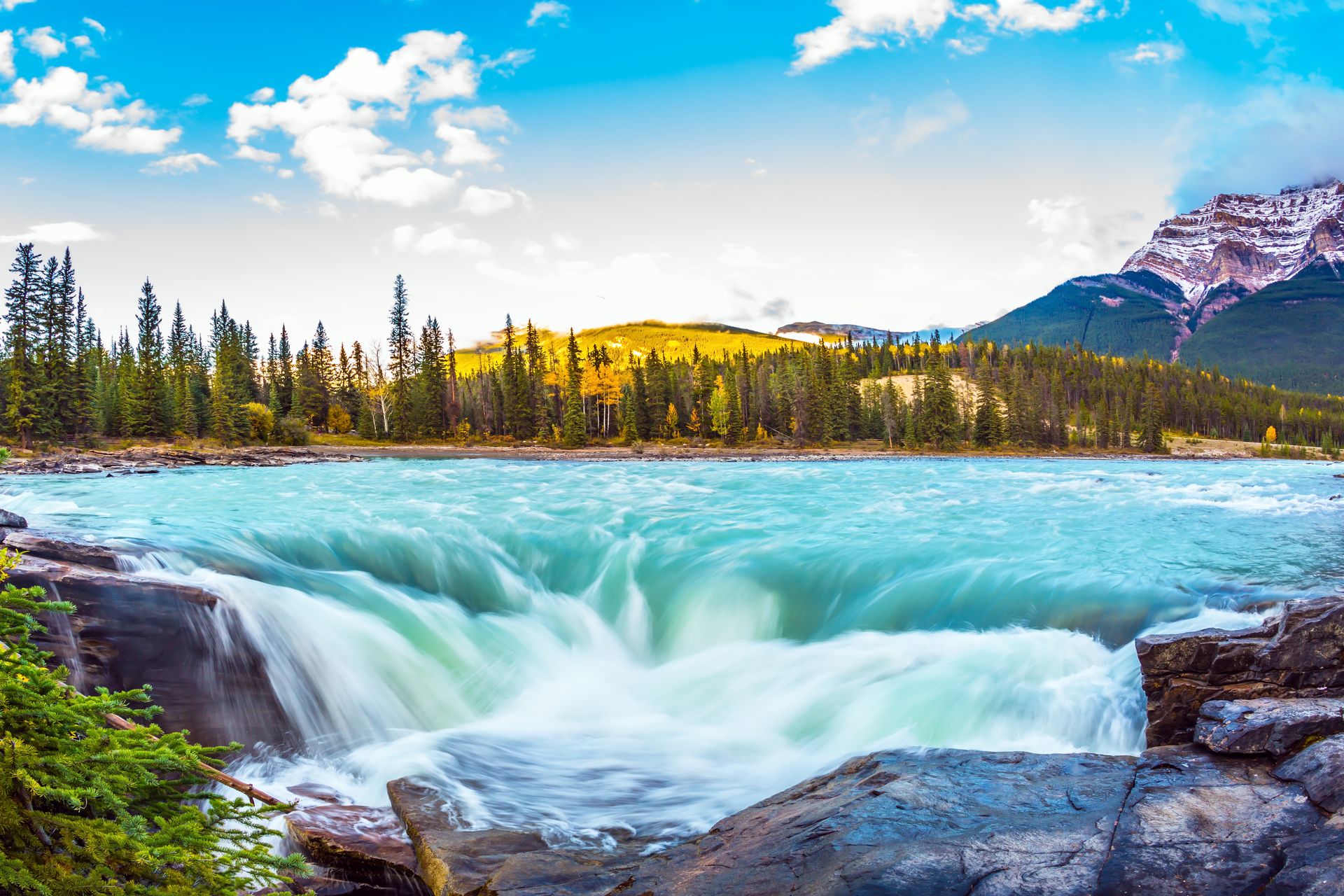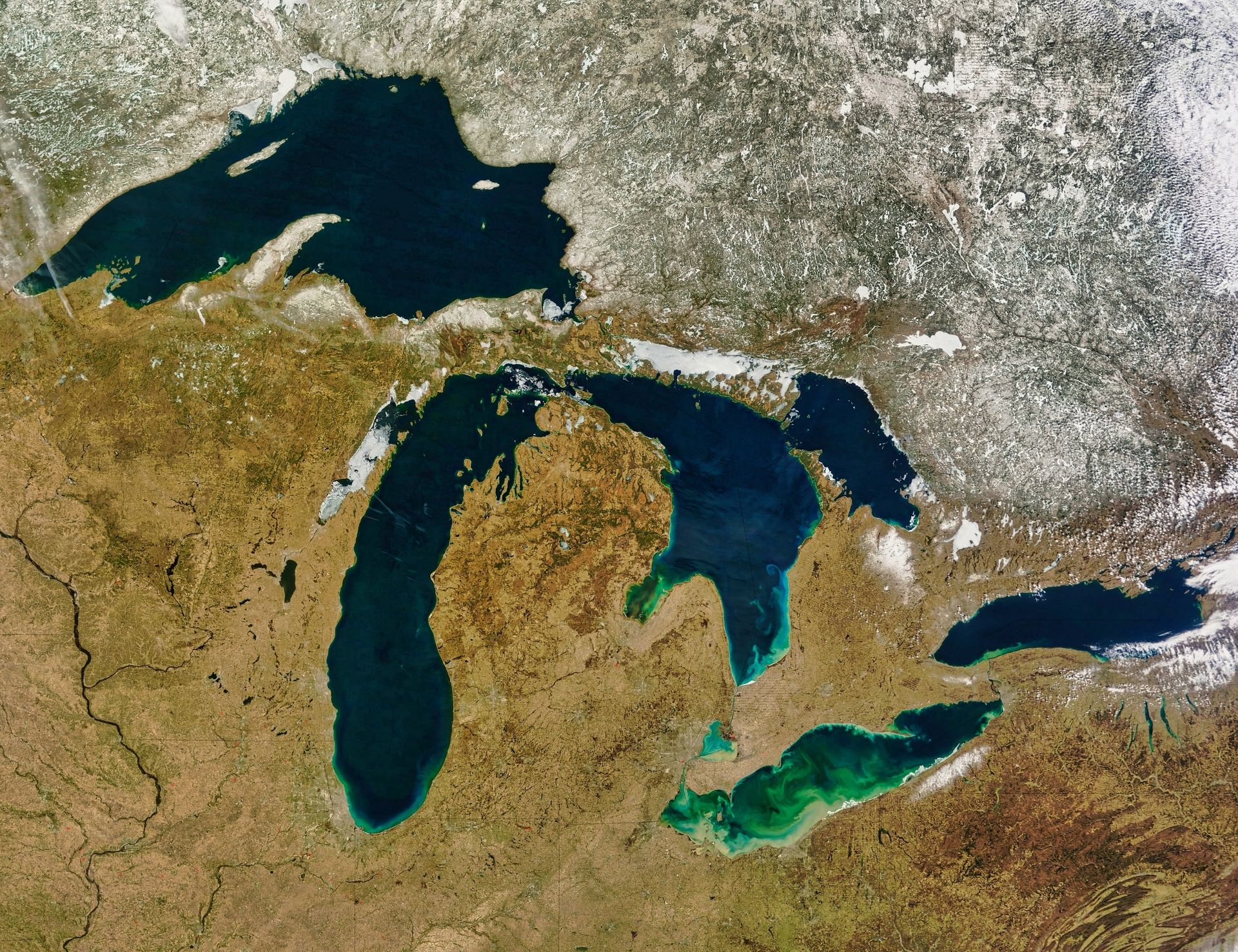Across continents, the world’s thirst for freshwater is testing borders, alliances, and the limits of diplomacy. Water is no longer a quiet environmental concern; it is the defining geopolitical resource of the twenty-first century.
In an age of drought, melting glaciers, and swelling cities, the politics of water is entering uncharted territory. What once flowed freely across borders is now being measured, priced, and claimed. From the Great Lakes to the Nile Basin, the contest for control over freshwater is redrawing global power lines.
The Liquid Divide traces this shift through three connected investigations.
In Part One, we begin in North America, where Donald Trump’s demand for Canadian water ignited a diplomatic storm with former Bank of England governor Mark Carney. What began as bluster over “water exports” has become a test of national sovereignty.
Part Two widens the lens to other flashpoints, from the Mekong Delta to the Tigris, revealing how similar tensions are reshaping economies and alliances.
Finally, Part Three looks ahead to governance: can a fragmented world design systems for sharing water fairly, or will scarcity breed conflict?
Together, these stories show that water is no longer a background issue. It is the bloodstream of civilisation, and how nations treat it will determine not only their prosperity, but their peace.

Part 1 – The Water Line: Trump, Carney, and the Politics of Liquid Power
When Donald Trump hints at tapping Canada’s freshwater reserves, the rhetoric sounds familiar. But behind the theatre lies a deeper question about sovereignty and scarcity on a continent already feeling the heat.
Washington in October
The words “natural conflict” were not shouted but observed. On 8 October 2025, in the Oval Office, Donald Trump described the relationship between the United States and Canada as one defined by both “competition and strength.” He added, pointedly, that there was a “natural conflict” between the two nations, a phrase that landed differently north of the border.
Earlier that year, Trump had raised eyebrows with talk of “a very large faucet” of fresh water flowing from Canada and of “millions of gallons” that could ease shortages across the American West. The comments, part showmanship and part provocation, revived a long-dormant debate about the idea of exporting Canada’s water.
Mark Carney, Canada’s Prime Minister, chose his words carefully. Standing beside Trump, he spoke of shared resilience and climate cooperation, but avoided the bait. The meeting ended with polite applause, yet its subtext lingered: in a warming world, even friendly neighbours may measure each other’s rivers.
Treaties and Tensions: A Shared but Unequal History
North America’s water diplomacy is rooted in the Boundary Waters Treaty of 1909, which forbids either nation from diverting transboundary waters without consent. A century later, the Great Lakes Compact strengthened that protection, banning bulk-water exports outside the basin.
But treaties, like riverbanks, erode over time. Loopholes exist. In the 1990s, several Canadian firms applied to export freshwater by tanker to the United States and Asia. Public opposition halted those plans, yet the notion of “blue gold”, water as the next strategic export, never quite disappeared.
Every drought in California, every new well drilled in Nevada, brings it back to the surface.
Carney’s government, backed by most provincial leaders, argues that selling bulk water would violate both environmental ethics and constitutional rights. Trump’s team counters that “mutual benefit” is simply free trade by another name. The stage is set for a clash between ecological stewardship and economic leverage.
What Trump’s words revived
Trump’s remarks did not constitute a policy proposal, but they carried political weight. In regions of the U.S. still reeling from the Colorado River crisis, talk of Canadian abundance offered a simple narrative: there is water, and there is need.
Trump’s language plays well to domestic politics. “Why should Canada hoard what we need?” he told supporters in Michigan. The message feeds the idea that abundance across the border is somehow unjust.
Canadian commentators saw something else, a warning that resource nationalism was creeping back into continental politics. The Tyee called it “pressure on Canada to rethink what is tradable.” Great Lakes Now noted that Trump’s “aggressive tone on water” had “united Canadians across political lines” in defence of their sovereignty.
For a country that prides itself on stewardship, the idea of exporting freshwater by pipeline or canal feels both environmentally reckless and politically unthinkable. Canada’s Transboundary Waters Protection Act already prohibits such bulk removal, and public opinion strongly supports that stance.
The lure of blue gold
Still, the economic temptation persists. Canada’s water wealth is immense Canada holds roughly 20 per cent of the world’s freshwater reserves, though less than half of that is renewable each year. As scarcity deepens elsewhere, investors speak more often of “water markets” and “futures”. In 2020, the Nasdaq Veles California Water Index allowed financial hedging against water prices, a shift that blurred the line between management and monetisation.

A satellite image of The Great Lakes. Blue Gold- Canada’s Immense Water Wealth
Carney, an economist by background, has argued that valuing nature is necessary for sustainability, but commodifying it is not. The nuance matters. Pricing water for conservation is not the same as trading it for profit.
/
Sovereignty under climate stress
The Trump-Carney meeting illustrated how quickly water can move from environmental issue to geopolitical stage. Nothing in their joint statement referred explicitly to exports or pipelines, yet the subject hung over the encounter. Both leaders know that as droughts worsen across North America, political pressure will rise to view water as a resource that should “flow to where it’s needed”.
For Canada, that idea cuts deep. Sovereignty here is not only about borders but about the moral right to protect ecosystems from commodification.
What happens next
In practical terms, little has changed. No policy, treaty or trade clause has been opened. Yet the rhetoric has shifted the atmosphere. Policy analysts in Ottawa warn that “the pressure to monetise freshwater will grow as climate shocks intensify.”
Carney has hinted that Canada will review its water-management legislation to ensure it “cannot be weakened by future administrations or trade disputes.”
The Trump-Carney moment in Washington may not have produced a new treaty, but it signalled a new era of political attention. As the century of carbon yields to the century of water, diplomacy itself will have to adapt.
The next contest for influence will not be fought over pipelines carrying oil, but over those imagined to carry life.



